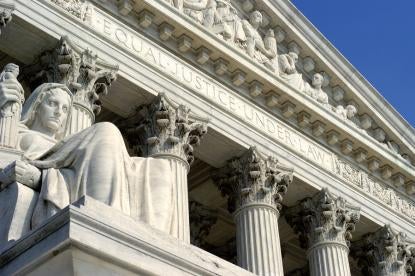Setting the stage for U.S. Supreme Court review, the U.S. Court of Appeals for the Seventh Circuit, in Chicago, has held that arbitration agreements that prohibit employees from bringing or participating in class or collective actions violate the National Labor Relations Act. Lewis v. Epic Systems Corp., No. 15-cv-82-bbc (7th Cir. May 26, 2016). This holding is contrary to that of the Second, Fifth, Eighth, and Ninth Circuit Courts of Appeals.
The Seventh Circuit has jurisdiction over Illinois, Indiana, and Wisconsin.
Background
In April 2014, healthcare software company Epic Systems electronically distributed to certain employees an arbitration agreement requiring all wage and hour claims against the company be brought through individual arbitration and requiring the employees to forego rights they may have “to participate in or receive money or any other relief from any class, collective, or representative proceeding.” The agreement stated that the employees would be deemed to have accepted it, and to have waived rights accordingly, if they “continue[d] to work at Epic.”
Jacob Lewis, a “technical writer” subject to the agreement, sued the company in federal district court on his own behalf and on behalf of other Epic technical writers, alleging violations of the Fair Labor Standards Act and Wisconsin wage and hour law.
Epic moved to dismiss the claim and compel individual arbitration pursuant to the agreement. The district court denied the motion, ruling the arbitration clause was unenforceable because it interfered with employees’ rights to engage in concerted activities for mutual aid and protection in violation of the NLRA. The Seventh Circuit now has affirmed.
Federal Arbitration Act
The Seventh Circuit Court of Appeals rejected the employer’s central contention: the Federal Arbitration Act (“FAA”) requires enforcement of the class, collective, and representative action waiver in the arbitration agreement.
The Court departed from the reasoning set forth by the Fifth Circuit Court of Appeals in D.R. Horton, Inc. v. NLRB, 737 F.3d 344 (5th Cir. 2013). By way of background, since its seminal decision in D.R. Horton, Inc., 357 NLRB No. 184 (2012), the National Labor Relations Board has held that an employer violates the NLRA by requiring employees to agree to arbitration agreements purporting to ban collective and class actions. Until this Seventh Circuit ruling, every U.S. Court of Appeals that has reviewed Board decisions on this issue has ruled that the agreements do not violate the NLRA and declined to enforce D.R. Horton or otherwise defer to the Board’s interpretation.
Indeed, the Fifth Circuit Court of Appeals denied enforcement of much of the Board’sD.R. Horton decision because the NLRB had failed to give sufficient weight to the FAA’s policy of favoring private dispute resolution based on the parties’ arbitration agreement. The Fifth Circuit pointed out that neither the text of the NLRA nor its legislative history contains a congressional command against application of the FAA. Thus, it held that the arbitration agreement should be enforced according to its terms, consistent with recent Supreme Court direction concerning the interpretation of arbitration agreements under the FAA. The possible inequality in bargaining power between employer and employee, the Court said, did not require a different result. (In that case, though, the Court did find the arbitration agreement impermissibly broad because it reasonably could be read by employees to bar them from filing charges with the NLRB. The Court directed the employer to clarify the agreement to correct that.)D.R. Horton, Inc. v. NLRB, 737 F.3d 344 (5th Cir. 2013).
Court watchers expect this issue to reach the high court and it is uncertain how the Supreme Court would rule. While the NLRB is not a party to Lewis, it filed an amicus “friend of the court” brief in the case. If review of the decision by the Supreme Court is requested and granted, the Board likely will seek to participate again.









 i
i

